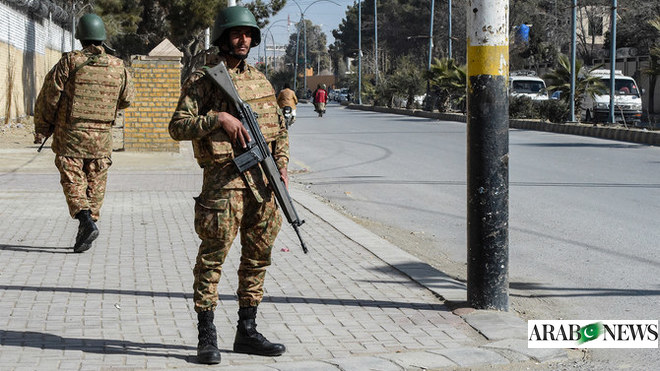Islamabad rejects ‘unhealthy’ comments by Indian politician on Pakistan’s nuclear capabilities, Kashmir
ISLAMABAD: Pakistan’s Ministry of Foreign Affairs on Tuesday said there were “baseless and unsubstantiated allegations” by Indian Prime Minister Narendra Modi and other ministers regarding Pakistan’s nuclear program, Kashmir dispute and other regional issues made during the ongoing election campaign in India. ” He rejected the “unhealthy” remarks.
Pakistan has been a major theme in Indian leaders’ speeches at election rallies, with Prime Minister Narendra Modi and leaders of the ruling Bharatiya Janata Party (BJP) making strong statements about the South Asian neighbor.
At an election rally in Bihar this week, Prime Minister Modi indirectly referred to National Congress leader Farooq Abdullah’s comments about Pakistan’s nuclear capabilities, saying he would make Pakistan “wear the bangle.”
Pakistan’s foreign ministry notes ‘alarming’ spike in anti-Pakistan rhetoric, rejects ‘irresponsible statements’ by Indian leaders on Jammu and Kashmir conflict, counter-terrorism efforts, bilateral relations and Pakistan’s nuclear capabilities He said he did.
“Unfortunately, these statements reflect an unhealthy and deep-seated obsession with Pakistan and reveal a deliberate intention to exploit ultranationalism for electoral gain. “It represents a desperate attempt to divert attention from mounting domestic and international criticism,” Pakistan’s foreign ministry spokesperson Mumtaz Zahra Baloch said in a statement.
“The bravado and chauvinism exhibited by India’s leaders reveals a reckless and extremist mindset. This mindset calls into question India’s ability to be a responsible steward of its strategic capabilities. , the purpose of Pakistan’s strategic capabilities is to protect its sovereignty and protect its territorial integrity.
Baloch said Pakistan has clearly demonstrated its determination to defend itself in the past and “should the Indian side choose to embark on its misadventures, it will not hesitate to do so in the future as well.”
Regarding Indian Union Home Minister Amit Shah’s assertion that Azad Kashmir is part of India, Jammu and Kashmir is an internationally recognized disputed territory and the relevant UN Security Council resolutions are final. He stated that a referendum in the area is clearly required for this purpose.
“No amount of exaggerated statements by India can change this reality,” Baloch said. “India should therefore focus on implementing these resolutions instead of indulging in grand fantasies.”
The Himalayan region of Kashmir has been divided between India and Pakistan since they gained independence from Britain in 1947, and both countries control part of the territory, but do not claim the entire area. ing.
The western part of the wider Kashmir region is administered by Pakistan as a nominally autonomous entity, while the southern part is administered by India as a union territory.
Baloch urged Indian politicians to stop drawing Pakistan into domestic politics for “electoral gains” and to handle strategically sensitive issues with “great care”. .
“We call on the international community to take note of the belligerent rhetoric of the Indian leadership, which poses a serious threat to peace and stability in the region,” she said.
“The vision of peace, progress and prosperity in South Asia can only be realized by peacefully resolving all outstanding disputes, including Jammu and Kashmir, and moving from conflict to cooperation.”

